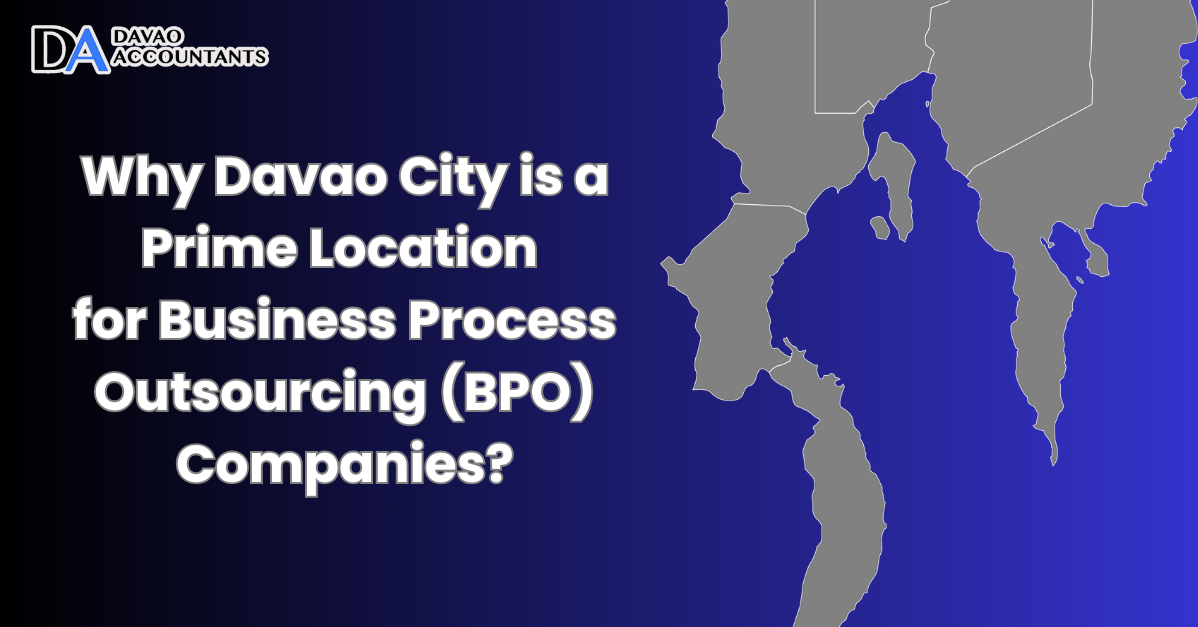The Philippines is experiencing some exciting economic growth, with a big 5.7% year-on-year increase in the first quarter of 2024. This means there are lots of great opportunities for businesses looking to expand into Southeast Asia.
This guide is here to help you through the process of setting up a company in the Philippines so that you’re all set to make the most of the bustling market.
The Philippines is a fantastic destination for businesses looking to grow, especially those eager to expand within the Southeast Asian region.
Setting up a company in the Philippines involves understanding the local regulations, registering with the Securities and Exchange Commission (SEC), obtaining business permits, and staying on top of the tax requirements.
The Philippines also offers attractive incentives for foreign investors, including tax holidays and duty exemptions, making it an even more appealing place to do business.
The country also boasts a skilled, English-speaking workforce and offers easy access to the Asia-Pacific region. It makes the Philippines a great place for businesses across various industries.
Entering the Philippine market can be fulfilling and lucrative with careful planning and seeking the right legal and business advice. This guide is your go-to resource for exploring all the fantastic opportunities the Philippines offers, paving the way for a successful and sustainable business in one of the most exciting economies in Southeast Asia.
Table of Contents
ToggleWhy Incorporate in the Philippines?
Discover the promising business landscape of the Philippines, a country characterized by its robust economic expansion and a government that warmly welcomes foreign investment. Venturing into the Philippines opens doors to the burgeoning Southeast Asian market, presenting a wealth of opportunities.
What makes the Philippines particularly attractive is its strategic position, which serves as a gateway to Asia, its competent workforce, and significant infrastructure improvements—embracing the Philippines as your next business destination means becoming part of a forward-moving and welcoming environment, ready to support your growth and success in the dynamic Asian market.
Understanding the Incorporation Requirements
Incorporating a company in the Philippines involves meeting specific legal and procedural requirements. These include determining the appropriate business entity, understanding foreign equity regulations, and meeting capital requirements.
General Requirements
To incorporate a domestic corporation in the Philippines, which functions similarly to a limited liability company, you must have between two (2) and fifteen (15) directors or incorporators. The majority of these individuals must reside in the Philippines.
Additionally, your company must have at least three key officers:
- President: Acts as the company’s signatory (does not need to be a resident of the Philippines).
- Corporate Secretary: Responsible for SEC compliance and corporate housekeeping (must be a Filipino citizen and resident).
- Corporate Treasurer: Oversees the certification of financial documents and compliance with BIR regulations (must be a resident of the Philippines).
Foreign Equity Considerations
Foreign equity in a domestic corporation is categorized into three brackets:
- >40.01% Foreign Equity: Requires a minimum capital of approximately ₱4,800,000 (US$200,000)**.
- <40% Foreign Equity: Minimum capital requirement of approximately ₱5,000 (US$100).
- 0% Foreign Equity (100% Filipino-owned): Minimum capital of approximately ₱5,000 (US$100).
Foreign investors in the Philippines generally enjoy similar rights as local citizens, with specific requirements for business registration depending on the type of entity they wish to establish.
Businesses such as corporations, partnerships, branch offices, or representative offices must register with the Securities and Exchange Commission (SEC), while sole proprietorships need to register with the Department of Trade and Industry’s Bureau of Trade Regulation and Consumer Protection.
The rules governing foreign ownership of corporations are outlined in the Corporation Code of the Philippines. The Foreign Investment Act (Republic Act No. 7042, as amended by RA 8179) has significantly liberalized the entry of foreign investments into the country, though certain restrictions still apply.
Businesses with Foreign Investment Restrictions
The Foreign Investment Act includes two negative lists, known as the Foreign Investment Negative List (FINL), which specify the types of businesses where foreign ownership is either limited or prohibited. These restrictions are based on concerns such as national security, public health and morals, and the protection of small and medium-sized enterprises (SMEs).
Domestic Corporations
A company registered with at least 60% Filipino ownership is classified as a Philippine national entity. If more than 40% of the company is foreign-owned, it is regarded as a foreign-owned domestic corporation. Foreign ownership in a domestic market enterprise can range from over 40% up to 100%, provided that the paid-in capital meets the minimum requirement of USD 200,000. However, this requirement can be reduced to USD 100,000 if the business employs at least 50 direct employees or utilizes advanced technology.
Retail Trade Enterprises
Foreign investors can fully own retail trade enterprises in the Philippines if they meet certain capital requirements. A 100% foreign-owned retail business is permissible with a paid-up capital of at least USD 2,500,000, and each store must have an investment of no less than USD 830,000. For high-end or luxury product retailers, the required capital per store is lowered to USD 250,000. Retail businesses that do not meet these capital thresholds cannot have any foreign equity.
Export Businesses
An export enterprise is defined as a business that exports at least 60% of its production. These enterprises can be fully foreign-owned, and they may apply for an exemption from the USD 200,000 paid-up capital requirement. Industries such as Knowledge Process Outsourcing (KPO), business process outsourcing (BPO), back-office services, IT, web development, and call centers are considered export enterprises in the Philippines, making them eligible for 100% foreign ownership.
Steps to Incorporate Your Company
- Register with the Securities and Exchange Commission (SEC)
- Begin the incorporation process by registering your business with the Philippine SEC through their eSPARC Portal. You will need to provide essential documents, including your company’s Articles of Incorporation and By-laws, and complete the F-100 Form if the company is foreign-owned. Upon approval, the SEC will issue a Certificate of Incorporation, allowing you to conduct business legally in the Philippines.
- Register with the Bureau of Internal Revenue (BIR)
- Register your company with the BIR to fulfill tax obligations. This includes acquiring a Taxpayer Identification Number (TIN) by submitting BIR Form 1903, your SEC Certificate of Registration, proof of address, and paying the Documentary Stamp Tax. You will also need to register your account books and invoices with the BIR.
- Obtain Local Business Permits
- Secure a Barangay Clearance from the local district where your company is located. This clearance requires your SEC Certificate of Registration, valid identification, and proof of address. Following this, you must obtain a business permit from the local mayor’s office, providing similar documentation along with your Barangay Clearance.
- Register as an Employer
- Finally, register your company as an employer with the Social Security System (SSS), Philippine Health Insurance Corporation (PhilHealth), and Home Development Mutual Fund (Pag-IBIG Fund). This ensures compliance with employee benefits regulations.
Post-Incorporation Compliance
After successfully incorporating your company, it is crucial to adhere to ongoing compliance obligations. This includes regularly updating your books of accounts, ensuring proper employee compensation, and issuing receipts to customers. Maintaining these practices will help establish trust with stakeholders and ensure smooth operations.
Conclusion
Incorporating a company in the Philippines in 2024 is a strategic move that can provide access to a growing market and a favorable business environment. By following the outlined steps and meeting all legal requirements, you can successfully establish your business and take full advantage of the opportunities in the Philippine market.









